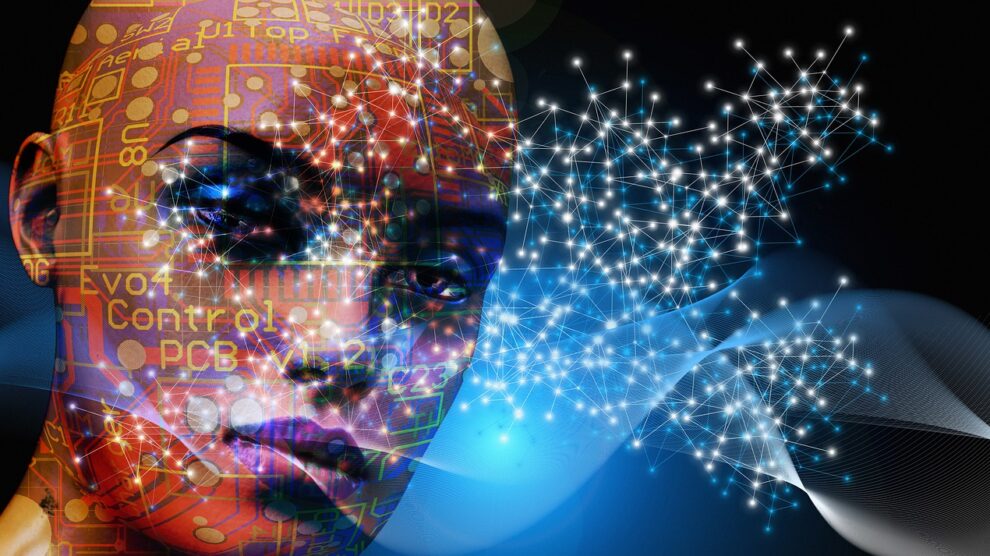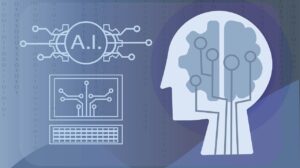The travel industry is one of the most innovative industries in the world. It has been changing rapidly in recent years and will continue to do so for the foreseeable future. The introduction of Artificial Intelligence (AI) technology has given rise to a new era of personalized travel experiences, which allows more people than ever before to enjoy their trips together with their loved ones or alone.
What Is AI?
AI is a type of computer programming that enables a machine to learn from data and make decisions. It’s used to improve the efficiency and accuracy of processes, from automating tasks such as customer service or inventory management to making recommendations and predicting outcomes.
AI can be used in any industry because it’s an adaptable technology; however, there are some specific applications that are particularly relevant for travel businesses. There are also several statistics that suggest that the future of the travel industry is good with AI. The tourism business has made over $900 Billion in 2021.
How Can AI Be Used in the Travel Industry?
AI has the potential to revolutionize the travel industry in numerous ways, enhancing customer experiences, streamlining operations, and providing valuable insights for businesses. It is particularly useful with big data and machine learning which now play a crucial role in the success of every business.
Here are a few methods in which AI can be used in the travel industry:
- Improving customer service: AI can be used to provide personalized recommendations and suggestions based on past purchases or preferences. This will allow travel providers to offer a better service and make their customers happier by offering them exactly what they want at any given moment.
- Enhancing the travel experience: AI can automate processes that would otherwise require human labor, such as booking flights or hotels online or organizing tours once you arrive at your destination (for example, by suggesting attractions based on weather conditions). This saves time while increasing efficiency–and it also makes things more convenient for travelers who don’t want their vacations interrupted by tedious tasks like looking up directions or making reservations over email with various companies before heading out on vacation!
- Personalized recommendations: AI algorithms can analyze user preferences, historical data, and behavior to provide personalized travel recommendations. These recommendations can include tailored destination suggestions, hotel options, activities, and travel itineraries based on the traveler’s interests. AI-driven recommender systems can suggest ancillary services to travelers, such as travel insurance, car rentals, or additional activities, boosting revenue for travel providers.
- Chatbots and virtual assistants: AI-powered chatbots and virtual assistants can handle customer inquiries, booking processes, and provide real-time support 24/7. They can handle routine tasks, answer common questions, and offer instant assistance to travelers, improving customer service and reducing response times.
- Price optimization: AI can analyze historical pricing data, demand patterns, and market trends to optimize pricing strategies for airlines, hotels, and other travel services. This helps companies offer competitive prices while maximizing revenue. Reducing costs associated with running a business in this industry sector by allowing companies access new markets without having employees available 24 hours per day across multiple time zones around the globe.
- Fraud detection and security: AI can detect and prevent fraudulent activities in bookings and transactions, protecting travelers and businesses from scams.
- Natural language processing (NLP): NLP enables AI systems to understand and process human language, making it possible to analyze customer feedback, reviews, and social media data to gain insights into customer satisfaction and sentiment.
- Personalized marketing: AI can help travel companies target specific customer segments with personalized marketing campaigns, offering relevant deals and promotions to potential travelers.
- Virtual and augmented reality: AI can enhance the travel planning experience by using virtual and augmented reality to provide virtual tours of destinations, hotels, and attractions, allowing travelers to have a more immersive experience before making their bookings.
- Predictive maintenance: AI can predict equipment maintenance needs for airlines and other travel operators, reducing downtime and operational disruptions.
- Language translation: AI-powered translation services can help overcome language barriers for international travelers, allowing them to communicate more effectively in foreign countries.
- Data analytics and insights: AI can process large volumes of data to provide valuable insights into customer behavior, travel trends, and operational efficiencies, helping businesses make informed decisions.
- Price prediction: AI can be used to make finding good travel deals easier. It can be designed to help customers find the best deal by implementing a price prediction and notification system for flights & hotels.
- Simplify delays and cancellations: Incorporating AI solutions in AI and mobile apps will help prepare passengers for any delays and cancelations. It can do so by predicting them and also providing alternative options.
- Big data processing: A large volume of data is generated daily (in Terabytes), and analyzing this can help improve performance. Implementing an AI solution makes this possible. The data automation and analysis tools help perform in-depth analysis rapidly to provide custom reports to aid companies in making better business decisions.
Examples of Using AI in the Travel Industry
AI has several applications in the Travel Industry:
- Finding the best flight and hotel. AI can be used to find the best flights and times for your trip. It can also compare prices & other factors.
- Finding vacation spots worldwide based on what kind of experience you’re looking for.
- Getting great deals on travel packages like cruises or tours through companies like Groupon or TripAdvisor Travel Deals Section.
- Smart AI chatbots that solve the critical queries of customers 24*7.
- Digital assistance that is voice-based.
- Smart baggage handling solution.
Benefits of Using AI
AI is a technology that can help automate travel booking, solve travel problems and reduce costs for your company. AI can also increase revenue by improving customer experience, satisfaction, and loyalty.
There are many benefits of using AI Technology; some of the key benefits are:
- Efficiency and automation: AI can automate repetitive tasks, saving businesses time and resources. This increases productivity and enables employees to focus on more strategic and creative tasks.
- Data analysis and insights: AI can process large volumes of data quickly and efficiently, extracting valuable insights and patterns that would be challenging or time-consuming for humans to identify.
- Personalization: AI can analyze customer behavior and preferences to deliver personalized experiences and recommendations, leading to higher customer satisfaction and loyalty.
- Cost savings: Automation through AI can reduce labor costs and improve operational efficiency, leading to significant cost savings for businesses.
- Predictive capabilities: AI can forecast future trends, customer behavior, and market changes, enabling businesses to anticipate and prepare for potential challenges and opportunities.
- Continuous learning and improvement: AI systems can continuously learn from new data and experiences, adapting and improving their performance over time.
- Safety and risk management: AI can be used for predictive maintenance in various industries, helping to identify and prevent potential equipment failures or hazards and enhancing safety measures.
Cost of Developing AI Mobile App
The cost of developing a travel AI mobile app depends on the complexity and the features to be added. Outsourcing your project to third-party developers or agencies will help reduce costs. It is important that you research before committing yourself to any agreement. It is possible to get a good idea of the cost by sharing the details of your requirements with a mobile app development company and requesting a quote.
Future Applications of AI Technology in Travel
The future of AI technology in the travel industry is full of exciting possibilities. As AI continues to evolve, we can expect innovative applications that enhance the travel experience for businesses and travelers. It will play a bigger role in future applications as mentioned here:
- Providing highly personalized travel recommendations, itineraries, and services.
- Simplify the travel planning process by handling all aspects of booking, from flights and accommodation to activities and transportation.
- AI-powered devices, websites, mobile apps, and wearables will act as intelligent travel companions, providing real-time updates on travel arrangements, local recommendations, language translation, and even health-related insights.
- Improve travel safety and security by analyzing data to identify potential risks and predict travel disruptions.
- AR technologies combined with AI will offer interactive and informative travel guides as mobile apps.
- AI-driven virtual reality (VR) experiences will allow travelers to explore destinations virtually before booking, providing a taste of what awaits them and helping them make informed decisions.
- Personalized loyalty programs reward customers with tailored offers and incentives based on their preferences and behaviors.
AI technology can potentially be a game changer in the travel industry. By harnessing the power of artificial intelligence, businesses can create better products that will give their customers a more personalized experience.
It will allow companies to offer tailored recommendations based on what people want rather than just relying on generic recommendations like other travel websites do today.





